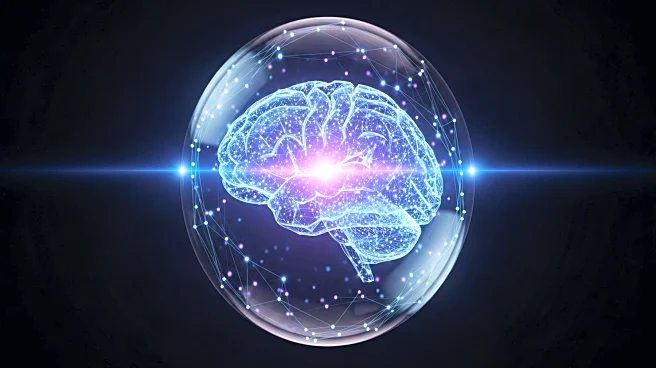What's Happening?
At the Italian Tech Week in Turin, Jeff Bezos, founder of Amazon, discussed the current state of artificial intelligence, describing it as being in an 'industrial bubble.' This term refers to a period when excitement inflates stock prices beyond their actual value, reminiscent of the dot-com crash of 2000. Bezos noted that during such bubbles, investments are made in both promising and flawed ideas without sufficient caution. Despite this, he emphasized that AI is not merely hype; it is a genuine technology poised to impact every industry significantly. Bezos compared the situation to the biotech bubble of the 1990s, which, despite many failures, led to significant advancements in life-saving drugs. He believes that once the hype subsides, the remaining strong companies will drive societal benefits.
Why It's Important?
The discussion by Jeff Bezos on AI's industrial bubble is significant as it highlights the potential for both short-term volatility and long-term benefits in the tech industry. While many companies may not survive the current investment frenzy, those that do could lead to transformative advancements across various sectors. This perspective is crucial for investors, policymakers, and industry leaders as they navigate the evolving landscape of AI technology. The comparison to the biotech bubble suggests that while immediate market corrections may occur, the enduring impact of AI could be profound, influencing industries from healthcare to finance.
What's Next?
As the AI industry continues to evolve, stakeholders may anticipate a market correction similar to past bubbles. Investors and companies might need to exercise caution, focusing on sustainable business models and technologies with genuine potential. Industry leaders, including those like OpenAI CEO Sam Altman and Goldman Sachs CEO David Solomon, have echoed similar sentiments, suggesting that a pullback is inevitable. This could lead to a more stable and mature market environment where the strongest companies drive innovation and societal benefits.
Beyond the Headlines
The ethical and cultural implications of AI's growth are also worth considering. As AI technologies become more integrated into daily life, issues such as privacy, data security, and the impact on employment may become more pronounced. The long-term shifts in how industries operate and the potential for AI to redefine societal norms could be significant, necessitating thoughtful regulation and public discourse.









